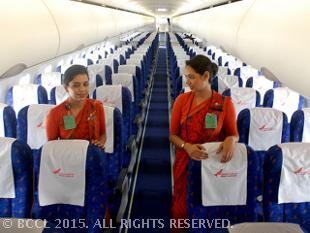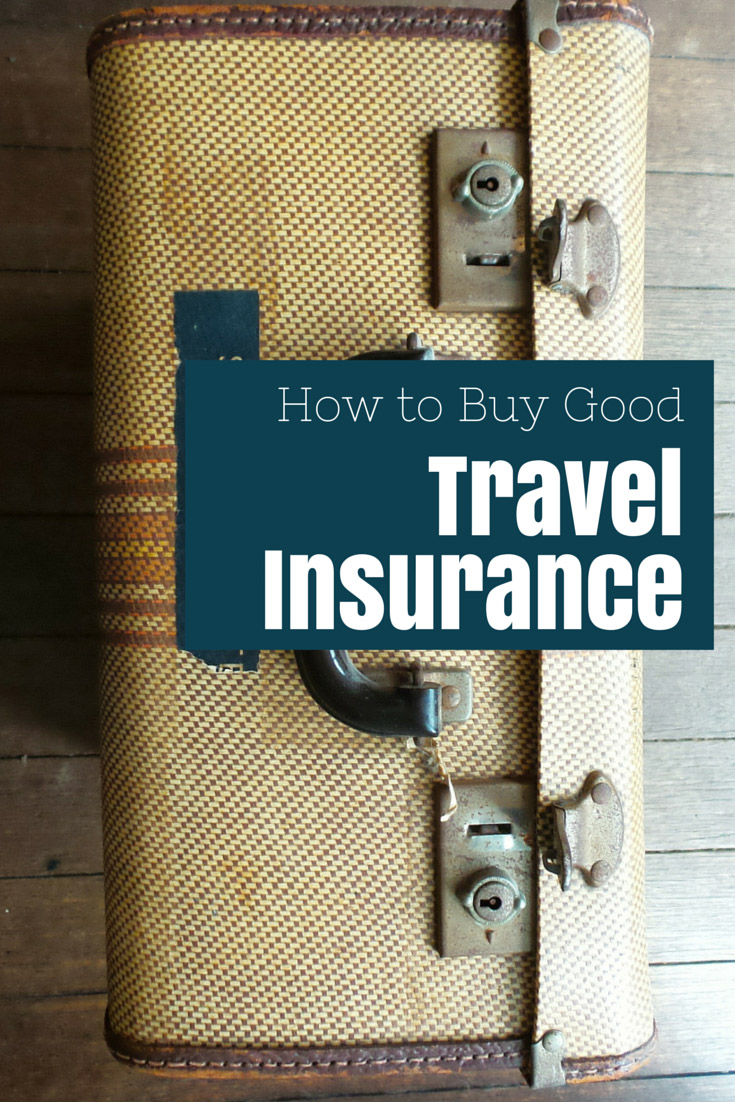While a lot of people think “I’m healthy, I don’t need travel insurance. I won’t get sick,”travel insurance is much than just medical protection. It covers you when your camera breaks, your flight is cancelled, a family member dies and you have to come home, or if something is stolen. It’s all purpose emergency coverage and is the single most important thing you should get but hope to never have to use. And, as it only costs a few dollars a day, you’re foolish not to get it. I never planned on falling in the sea in Italy with my camera or popping my ear drum in Thailand but I did and, if it wasn’t for my travel insurance, I would have been out a lot of money.
Travel insurance is one of the most complex and confusing aspects of trip planning. With the myriad of plans and companies out there, people can easily get confused about what they should get and why. Given its importance and the amount of time it’s been since I last discussed it, I want to start the year by discussing it again.
Travel insurance is something you
absolutely need on the road. You never know what could happen, and most health plans don’t cover you overseas. I never thought I would pop my eardrum. My friend never thought he would break his leg hiking in New Zealand. A writer I know had to be helicoptered out of the Amazon after he fell off a boat. Another friend didn’t think her father would die and she would have to fly back home. But all those things did and travel insurance was there when all those things happened.
(My favorite travel insurance provider is World Nomads. They always have my back when something like the above happens.)
I was recently in southern Africa for 3 weeks and my plan cost only $4 per day. Considering my domestic health plan wasn’t going to cover me while overseas, it was a small price to pay for knowing if I got attacked by a lion, bitten by a snake, or contracted malaria, I was protected.
I would rather be safe than sorry and not be stuck with a giant hospital bill.
But, like I said, it’s more than just medical care. Loose a bag? Insurance has you covered. Trip cancelled? Insurance is there. Get something stolen? Insurance is there too.
Travel insurance has more than proved its worth many, many times. It’s the kind of thing you will be very thankful for when you need it but hope you never do. After all, you don’t want to end up like my friend who didn’t have insurance when her computer was stolen and had to pay out of pocket for a new one.
Here is how to avoid getting a bad insurance plan and not be properly covered:
What to look for in a great plan
There are a lot of options out there. This is a billion dollar business and everyone wants their hand in the cookie jar, thus you face a mind-numbing number of choices that can be confusing and overwhelming. And, often, in the fine print, you’ll find that plans aren’t as good as you thought.
When looking for a plan, first make sure they have a high coverage limit on your medical expenses. A good company will provide up to $100,000 in coverage care, though more expensive policies will cover you for higher amounts. The maximum coverage limit you can find is around $1,000,000 USD, though I’m not sure why you would ever need a limit that large. High coverage limits are important because if you get sick, injured, or need serious attention and have to seek professional care, you want to make sure your high hospital bills are covered. The worst thing you can do is go cheap and get a policy with a $20,000 coverage limit, break a leg, and reach that limit before they are done taking care of you. Don’t be cheap with your health. Get minimum coverage of $100,000.
Second, you want to make sure your policy also covers emergency evacuation and care that is separate from your medical coverage. If you are hiking in the woods and you break your leg, your policy should cover your evacuation to the hospital. If a natural disaster occurs and you need to be evacuated to somewhere else, your plan should cover that as well. This protection should cover an expense of up to $300,000 USD.
Additionally, evacuation also should mean from the hospital to your home country. Standard emergency evacuation usually includes this provision but it’s important you double-check a company will cover the cost of your flight back home if you need it.
A great policy will always include the following provisions:
- Cover most countries in the world.
- Some coverage for your electronics (and have the option for a higher coverage limit).
- Cover injury and sudden illnesses.
- Twenty-four hour emergency services and help (you don’t want to call to be told to call back later).
- Cover lost, damaged or stolen possessions like jewelry, baggage, documents, cameras, etc.
- Cover cancellations such as hotel bookings, flight, and other transportation bookings if you have a sudden illness, death in the family, or some other emergency.
- Cover emergencies, strife in the country visited, etc., that cause you to head home early.
- Policies should include personal accident coverage.
- Have financial protection if any company you are using goes bankrupt and you are stuck in another country.
Don’t get a policy that doesn’t cover these bullet points!
A quick note on electronics: most companies only have a small limit, usually up to $500 USD, as part of their basic coverage. You can often buy supplemental insurance to get a higher amount of coverage. For instance, Clements Insurance offers special coverage for your electronics. Prices vary depending on the country you visit (between $145-195 per plan) but they don’t have worldwide coverage. You have to get coverage for your specific country. Moreover, many regular and home insurance companies such as State Farm offer plans that can help you cover your electronics.
What isn’t covered is just as important as what is
Know what is also not covered by your plan. Most policies do not cover accidents sustained while participating in extreme adventure activities such as hang gliding, paragliding, or bungee jumping unless you pay extra. The majority of companies won’t cover you if you injure someone on the road (called third-party liability). Policies do not normally cover alcohol- or drug-related incidents, or carelessness in handling your possessions and baggage. You won’t get reimbursed if the problem happened because you were reckless, and how “reckless” is defined is a matter up to each company. Simply put, if a reasonable person wouldn’t partake in what caused your accident, you won’t be covered.
Moreover, you won’t be covered for pre-existing conditions or general check-ups. For example, if you have diabetes and need to buy more insulin, you won’t be covered. If you want to go see a doctor for a general check-up, you aren’t covered either.
The medical portion of travel insurance is more about emergency care than being a replacement for your normal health care. A lot of people purchase insurance thinking it is, then get disappointed when they find out they can’t go get an annual physical with it. Travel insurance is accident insurance. It is there to protect you in case of emergency and, if need be, get you home in a hurry. If you want a global health plan (because, say you now live in Beijing), you need a completely different type of plan.
Making a claim
If you make a claim, remember that any travel insurance company, no matter how good, is there to make money and will try to avoid paying out as much as they can. They are, after all, an insurance company and they don’t make money by paying out to every Tom, Dick and Harry. Be prepared to wait to receive your money because even the best companies drag their feet. In order to ensure that you do get paid your claim, make sure you have all your receipts, necessary forms, and proper documentation – all of it will help make your claim go through a lot quicker.
Major travel agencies like STA Travel and Flight Centre also offer their own plans, though coverage is very limited. While I haven’t used them, many other travel writers I know recommend Medjet and IMG too. Another really good website is
Insure My Trip. It compares policies from a number of providers and a wide range of policies at once. It’s like a global insurance search site! It lots of people have success on their site, and I especially like their high age limit as not enough companies cover seniors!
My favorite insurance provider is
World Nomads. I’ve been using them since I first started traveling in 2003 and use no one else. They are very reputable, and claims are quickly and fairly processed. I enjoy World Nomads for a number of reasons: I can purchase and renew my insurance policy online in a matter of minutes, they have a very friendly and responsive staff who answer questions and help solve problems via social media, have great customer feedback, and most importantly, they provide a lot of coverage at a good price. If there’s one company I would recommend, I would say go with them.
Still unsure? Here’s what some community members said about travel insurance:
Ref: http://goo.gl/mul5C3




